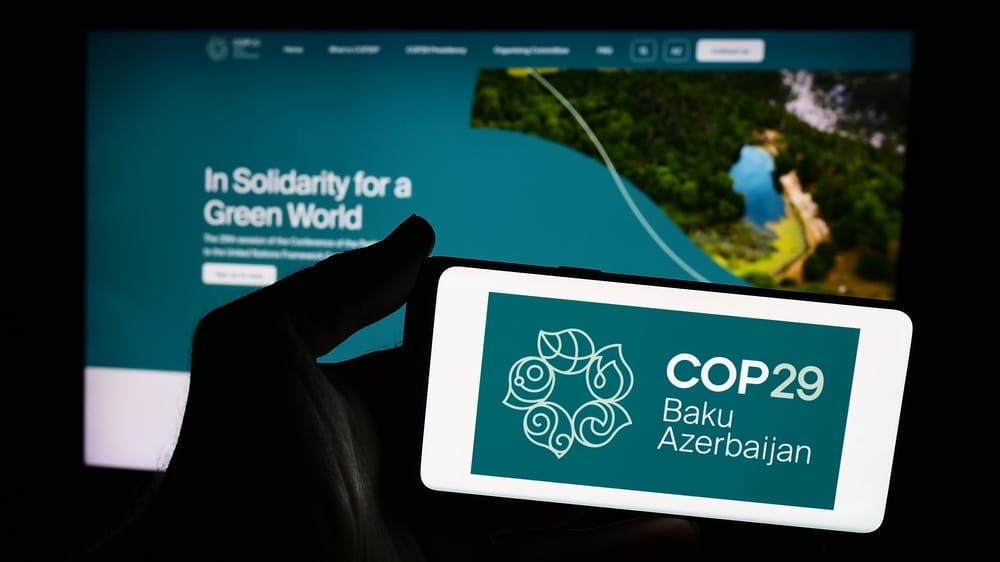
What Businesses in APAC Should Expect Under a Second Trump Administration: Opportunities, Challenges, and Takeaways

COP29 Showcases the Challenges of Balancing Energy Security and Sustainability, Forcing ESG Strategy to Adapt
Green-discerning Machine Learning: Key Themes from the Singapore Fintech Festival 2024
November 2024

By Laveen Prakasan, senior account manager, technology and fintech practice, based in Sandpiper’s Singapore office.
The 2024 Singapore Fintech Festival (SFF) saw the gathering of some of the world’s leading minds from finance, technology, policy, and sustainability. Over the three days of the event, our team attended keynote speeches and panels, and spoke with fellow attendees.
SFF 2024 took place as the APAC region reaches an important technological turning point. The rapid advance of technology is unlocking new opportunities for all kinds of communities and businesses in APAC. From educational opportunities to payment platforms, fintech is opening up new possibilities and offers communicators a blank canvas to weave compelling narratives. The region faces many challenges which fintech may be able to solve or at least alleviate.
Out of the many topics in the air at the festival, two central fintech themes caught our attention.
AI will reshape finance, so strong regulations are needed
AI continued to be a core issue at this year’s SFF. Its effect on the financial services industry is hard to ignore. AI-powered chatbots are enhancing customers’ conversations and experiences with their banks, while AI models are being deployed to help detect and prevent fraud. Risk assessment, credit ratings, portfolio management, customer relationship management – these are just some of many areas where AI has been trialled or deployed within banks across the region. Many tech companies worldwide are curating AI services for clientele and prospects in the financial services industry, promising better efficiency, productivity, and security among many other benefits.
Regulations such as the EU AI Act and guiding frameworks such as the ASEAN Guide on AI Governance and Ethics are meant to serve as guardrails for the proper use of AI. Some jurisdictions have gone a step further and tailored frameworks specifically for the finance sector, such as the Monetary Authority of Singapore’s (MAS’s) Principles to Promote Fairness, Ethics, Accountability and Transparency (FEAT) in the Use of Artificial Intelligence and Data Analytics (AIDA) in Singapore’s Financial Sector. Such frameworks will continue to serve as a template going forward, not just for the financial industry and other sectors, but also for the AI industry itself.
Communications takeaway: Embrace both AI and its regulation
AI is also impacting communications professionals, both at agencies and in-house. In Sandpiper’s AI in Communications-Industry Opportunities and Risks study, 86% of communications professionals were positive about advances in AI, especially generative AI.
Like any new technology however, AI also brings risks. Numerous jurisdictions have either rolled out laws to govern its use or plan to do so, yet only 11% of communications professionals have policies or guidelines in place for using generative AI tools. AI can be an enormous help with corporate communications, but must be used carefully and responsibly.
Progress toward sustainability requires urgent and large-scale investment
Environmental, social, and governance (ESG) questions are being raised at events like SFF as we inch closer toward 2030, when the parameters of the Paris Agreement come into effect. Amid the need for ESG finance, the important role financial institutions play in allocating funds through green bonds, ESG-focused investments, and other sustainable finance initiatives is well recognised, as is these institutions’ excellent position to leverage blockchain technology, AI, and data analytics to address sustainability challenges. Greater collaboration between private firms, government bodies, and technology providers will be key to scaling these solutions, making them more accessible to a broader range of industries.
At the same time, there is a significant dearth of professionals skilled in sustainable finance, green technology, and ESG policy development. A hot topic of conversation at the SFF was the need for financial institutions, tech firms, and even governments to proactively cultivate this talent pool through education, upskilling, and recruitment initiatives.
ESG discussions around SFF 2024 offered some reason for hope. For example, there was widespread recognition of China’s success in pivoting to renewables, leading many to ask how the rest of APAC can best work with China to expand this capability across the region. ASEAN in particular presents tremendous opportunities for upgrading and developing grid infrastructure as well as wind and hydrogen generation capabilities. Fintech could be the great leveller, and democratise access to the green finance needed to drive all these projects and reach sustainability goals.
Communications takeaway: Commit to tech sustainability
Clarity is key when it comes to talking sustainability. There is a wall of chatter and white noise on sustainability ambitions and net-zero targets, both positive and negative. A recurring discussion topic at SFF was how to pierce the wall of blanket scepticism about genuine claims and targets. The only way to keep naysayers quiet is to show your hand – use cases that show your sustainability ambitions and targets.
Thought leadership and empirical research studies can establish a benchmark for peers to adopt and emulate. Hard numbers showcase the extent and impact of sustainability initiatives. In some instances, they might expose shortcomings too, but this will only highlight your determination to improve – and also gives your communications team a bank of stories to chart your future progress.





